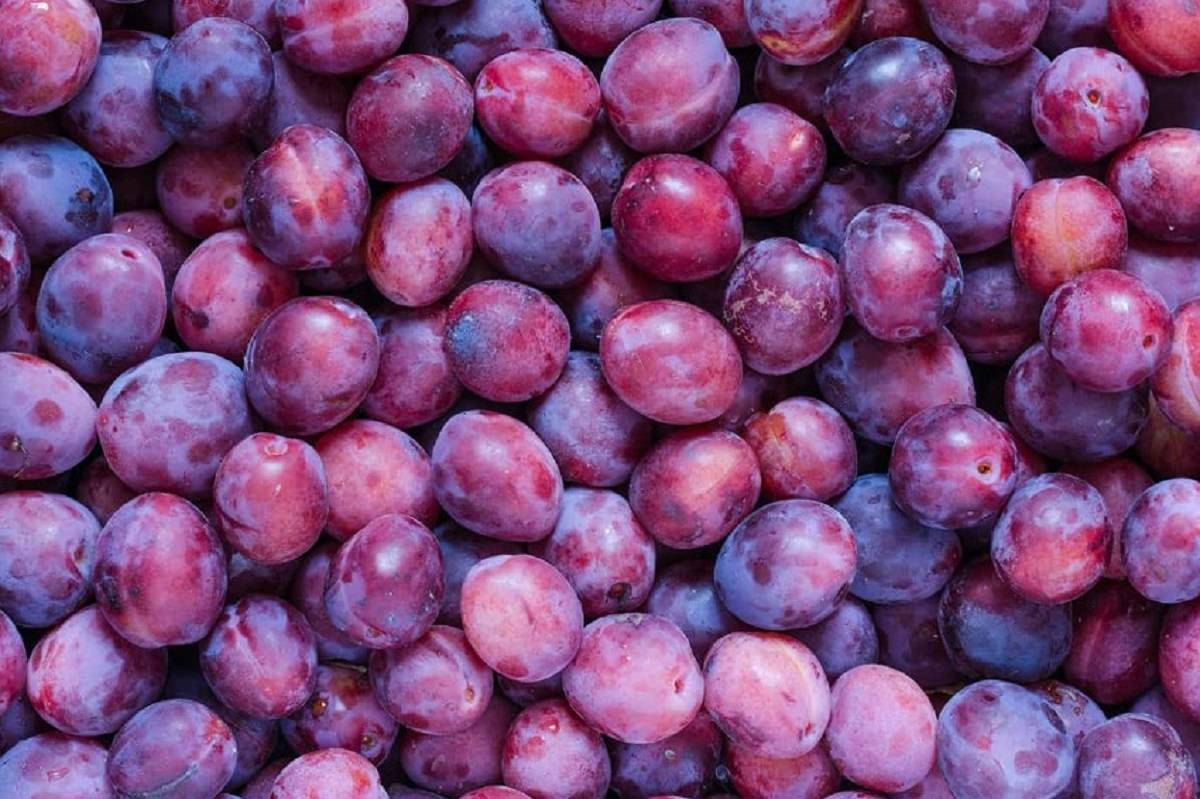
Plum belongs to a diverse group of species and its fruit is usually medium size, firm, and juicy. Plum like other stone fruits such as nectarines, peaches, and apricots is known as a drupe fruit. Drupe fruit is a type of fruit that has seeds surrounded by a rock-like pit. Plum is native to China but is now cultivated widely across the world.
Nutritional Information
100 grams of plums has 11% of the recommended daily value of Vitamin A, 26% of Vitamin C, 13% of Vitamin K, 9% of Dietary Fibre, 4 % of calories, 7% potassium, 1% calcium, and 3% of magnesium and phosphorous. It also contains antioxidants such as lutein and zeaxanthin. Prunes or dried plums have the same nutritional benefits but it is much higher in sugar.
Health Benefits of Plums
Remedy for constipation- Plums are rich in dietary fibre. Therefore, raw and fresh plums are a common home remedy for constipation. It also has sorbitol, which is a sugar-based alcohol that acts as a natural laxative.
Rich in antioxidants- Plums are packed with compounds that exhibit antioxidant properties. Antioxidants are substances found naturally in fruits and substances that can either prevent or delay some forms of cell damage. Antioxidants present in plums help reduce inflammation, improve bone health, and also reduce the risk of diabetes and heart disease. Plums are also rich in phytonutrients which fight oxidative stress. Oxidative stress causes bones to become porous and eventually prone to breakage.
Weight management- Plums are very low in calories. 100 grams of plum is only 4% of our daily intake of calories. Plums are also high in fibre and have a high water content. This means a cup of plums is not only nutritious but also very fulfilling. Its high water content helps curb our appetite and promotes weight loss.
Improves bone health- Regular consumption of plums is associated with reducing the risk of osteoporosis. Studies show that both dried and fresh plums can increase bone mass density because of the presence of rutin, a bioactive compound found in plums. It also reduces bone health because it has high Vitamin K content. Vitamin K is linked to improving calcium balance in the body. Dried plums have a higher concentration of Vitamin K than fresh plums. Therefore, doctors recommend dried plums or prunes to postmenopausal women.
Heart health- Plums have been linked with controlling hypertension, lowering blood pressure levels, and even lowering bad cholesterol in the bloodstream. Plums are also rich in phytochemicals and nutrients that tend to lower the inflammation that triggers heart disease. Plus, the high concentrations of potassium found in plums also get rid of excess sodium and reduces the tension in the walls of our blood vessels. This significantly reduce the chance of stroke.
Best Way to Eat Plums
Plums are a late summer fruit. Therefore, they are best enjoyed from July to early September. A fully ripened plum will have a waxy exterior and will be firm when squeezed gently. Plums are great both raw and cooked. However, overcooking will lead to a significant loss of nutrients. Raw and fresh plums can be added to your smoothies, can be used as a topping on your granola or yogurt, and can even be added to salads.
However, plums are not safe for everybody to consume. Some people are allergic to plums because of “birch pollen” which is also found in other fruits such as apples and peaches. Allergy symptoms normally develop within minutes of consumption and include itching and swelling of the mouth or throat.
Conclusion
Plums are one of the oldest fruits to have been domesticated by humans. It is known for its distinctive sweet and sour taste and is popular around the entire world. Plums, both fresh and dry, are a mainstay in many cuisines because of their taste and many health benefits. It is a nutrient-rich food that is good for bone, heart, digestive, and even mental health.
















